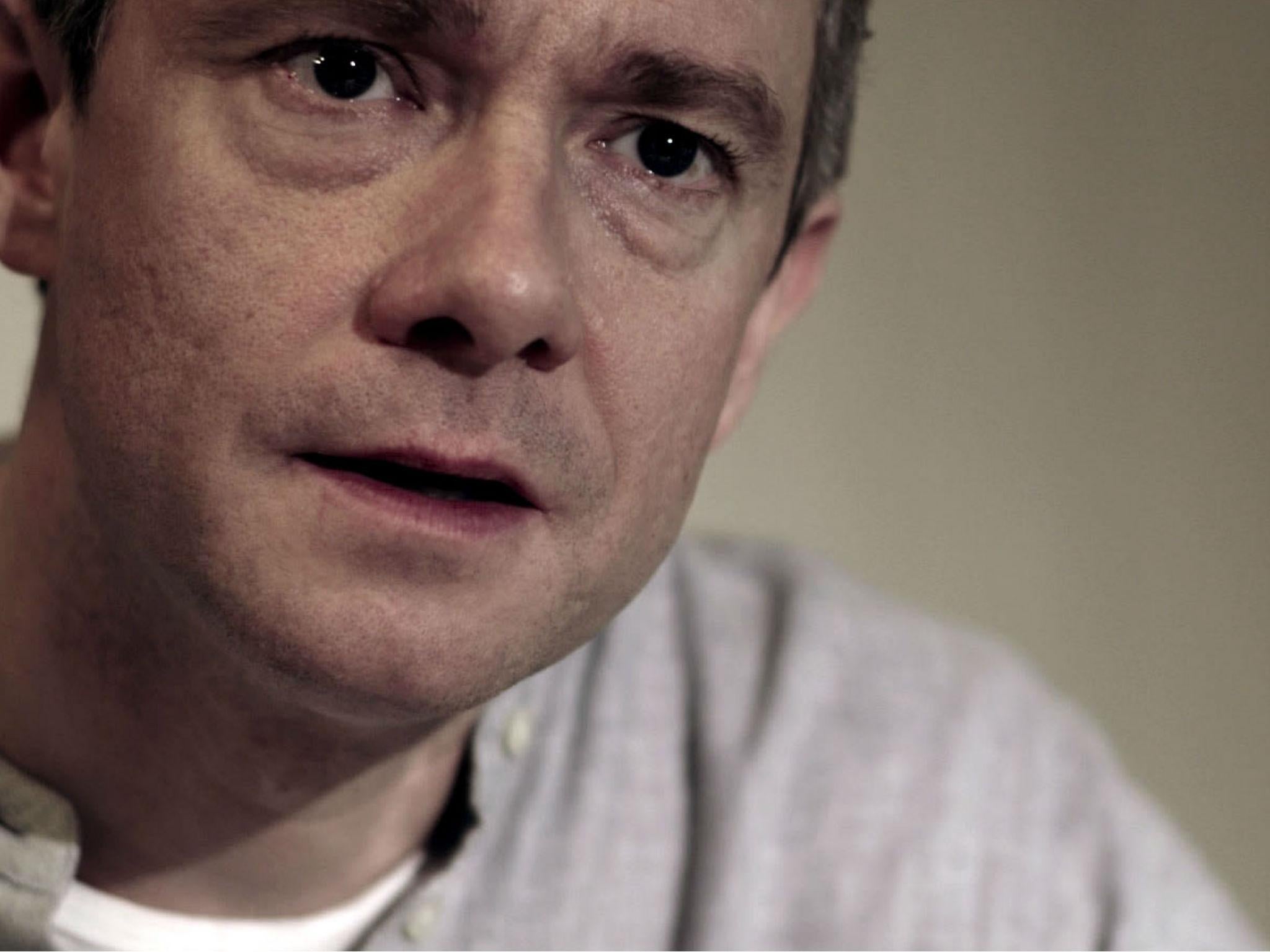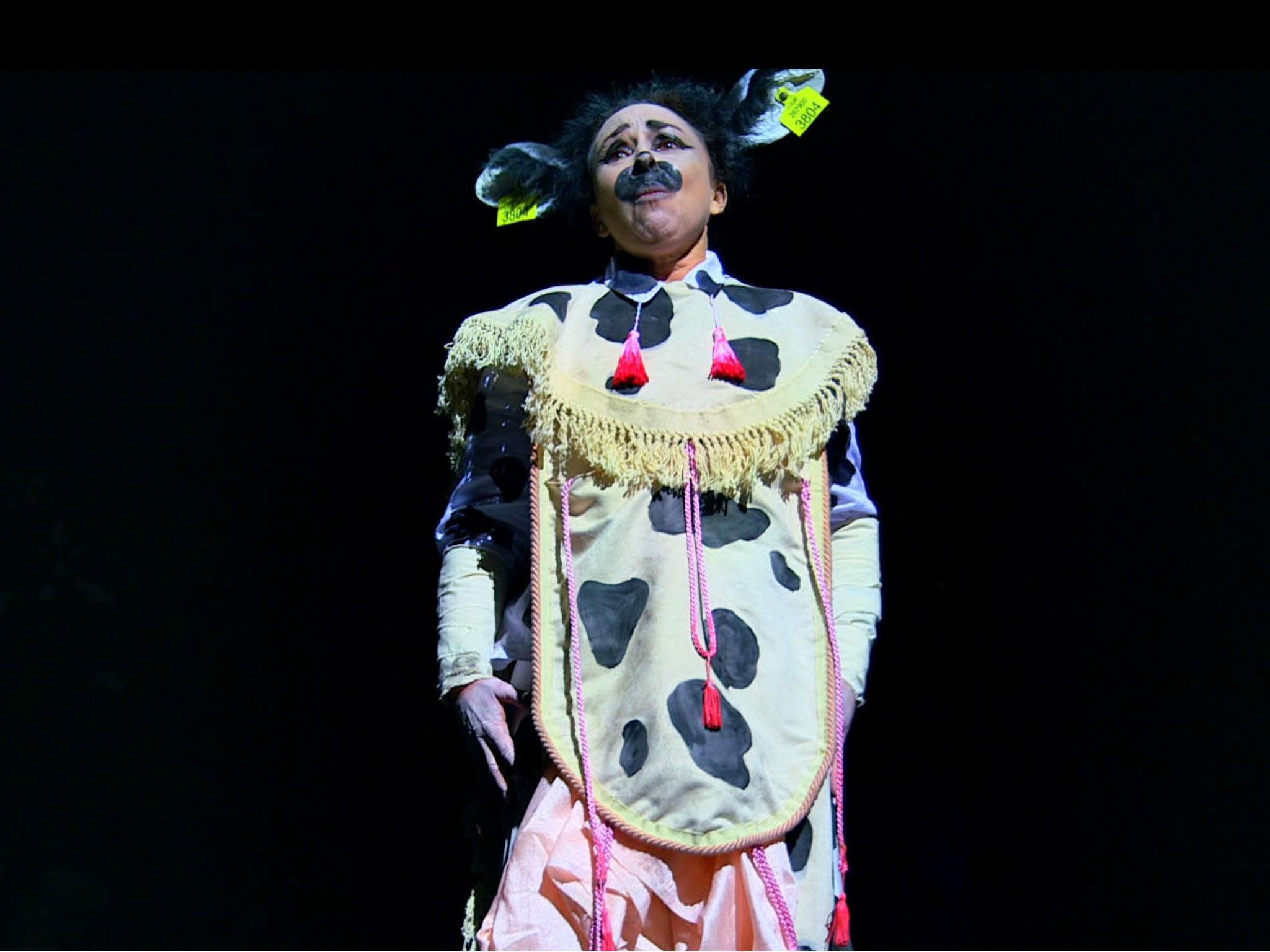Carnage, review: Simon Amstell has made the world's first vegan comedy that's actually funny
The comedian's first feature-length film is not only hilarious, but puts a highly convincing case forward for veganism without once being preachy

Your support helps us to tell the story
From reproductive rights to climate change to Big Tech, The Independent is on the ground when the story is developing. Whether it's investigating the financials of Elon Musk's pro-Trump PAC or producing our latest documentary, 'The A Word', which shines a light on the American women fighting for reproductive rights, we know how important it is to parse out the facts from the messaging.
At such a critical moment in US history, we need reporters on the ground. Your donation allows us to keep sending journalists to speak to both sides of the story.
The Independent is trusted by Americans across the entire political spectrum. And unlike many other quality news outlets, we choose not to lock Americans out of our reporting and analysis with paywalls. We believe quality journalism should be available to everyone, paid for by those who can afford it.
Your support makes all the difference.“I have written and directed a film about veganism. I’m sorry.” This isn’t what you might expect Simon Amstell to say about his first feature-length film. Released on BBC iPlayer on 19 March, Carnage: Swallowing the Past is a mockumentary set in a future Britain, where meat, eggs and dairy are outlawed. In this brave new age world, animals roam free, and there is no such thing as veganism, only “carnism”.
Amstell apologising for Carnage may be surprising given he is vegan, wrote and directed the film, and originally conceived of it as a manifesto. But if this proves anything, it’s that the vegan cause needs more self aware people like him. Carnage is an almost perfect example of how to push a worthwhile message without being preachy. And in what must be a world-first for vegan activism, it even takes the piss out of vegans.
I'm not a vegan, but after watching Carnage, I'm even more certain that I should be. It's completely unsustainable and cruel to eat meat and dairy, and more people need to realise this. But so far, many feel alienated by the vegan movement. Carnage works because it's very funny, entertaining but also shows how society can be made to change its mind. It's not about shaming anyone, or bombarding them with stats. Instead, the film asks a simple question: how will we look back on our treatment of animals in 50 years?
The film opens with young, polyamorous Brits frolicking in nature, popping nuts in their mouths and chatting about plant-based foods. It's 2067, and the idea of eating animals is unfathomable to them. For some, the idea brings them close to tears. “Why would anyone eat a baby?” one sensitive young man (played by Alex Lawther) asks. “It’s just a baby. A little baby lamb.”

Meanwhile, Britain’s elderly citizens are undergoing therapy to help them deal with the guilt of their carnist pasts. Dr Yasmin Vondenburgen (Linda Bassett) runs sessions for in which they are hugged and forgiven. At one point, they take turns naming the various types of cheese they’ve eaten. Some have their faces pixelated because of the social stigma. Others can’t handle the shame, and run out of the room.
In such a divided world, Carnage attempts to bridge this generational gap, and teach young people how eating meat wasn’t their parents and grandparents' fault; like us, they simply knew no better.
Having been "made" in its own fictional future, Amstell’s narration provides a amusingly revisionist version of the past. When we first go back to 1944 for example, he reminds us of the most important event of that year: the founding of the first vegan society.
This distancing is funny, but it’s also hard to resist its political motive. Throughout Carnage distressing images from inside the meat industry, showing chicks being gassed and cows shot in the head, are cut alongside footage of extreme eating challenges and fast food adverts. Spliced with animal suffering, they take on a strange and haunting quality. At the press screening, the audience even gasped as a beaming Nigella Lawson was shown crunching the back of a chicken with her bare hands, in a real archived clip from her show.

As well as making non-vegans question their dietary decisions, Carnage is a fascinating exploration of how ideas spread. From 1944 to 2067, we see how they trickle down through time, popping up in performance art works and protests, musicals and memes, until their message eventually solidifies in the public consciousness.

Watch Apple TV+ free for 7 days
New subscribers only. £8.99/mo. after free trial. Plan auto-renews until cancelled

Watch Apple TV+ free for 7 days
New subscribers only. £8.99/mo. after free trial. Plan auto-renews until cancelled
In its version of history, Carnage highlights artists who helped bring veganism into the mainstream. Sketches showing their works are dotted throughout, forming a sort of vegan variety performance. We see a woman dressed as a cow singing about her enslavement in the style of Les Miserables, a viral video showing the horrors of chicken farming via puppets, and a scene from a hard-hitting drama in which an elderly woman (Eileen Atkins) forgets why we kill animals for meat. Sitting opposite her son (Martin Freeman), she stares at him in horror as he refers to the chicken on her plate as “it”.

The main narrative of Carnage follows two activists as they campaign for animal rights. Troye King Jones and Freddy Jayashanka are the Malcolm X and Martin Luther King Jr of veganism. Jones, donning X’s semi-rimmed specs, favours direct action “by any means necessary”, while Jayashanka, Britain’s first celebrity vegan chef, converts the meat-eating masses with love and compassion.
The only snag in this political movement, and where Carnage slightly stumbles, is how male it is. Women are currently leading some of the biggest protests around the world, whether it’s the Women’s March in America, Sisters Uncut in the UK, or India's campaigns against sexual violence. This isn’t to say that Carnage lacks strong female characters. But with its bright optimism for the future, it seems amiss not to play out this trend within the protest movement, or provide some balance between two such central characters.
Like Brass Eye, much of Carnage’s humour comes from its blend of its authority and absurdity. It documents the eccentricities of the vegan movement with the straight face of a news report, even when its campaigners are killed and eaten by members of the "Great British Meat League". Clearly referencing the murder of Jo Cox, such real-life parallels are deployed throughout, and can sometimes be unsettling. But they do help make Carnage's strange version of the future appear more feasible. If the last year teaches us anything, it's how much reality and absurdity can be the same thing.
Making veganism funny is no mean feat. In fact, it may be unprecedented. But Carnage isn't just funny. It’s often said, when looking back on mistakes, that hindsight is 20/20. And this is Carnage’s gift to us: a hilarious but meaningful hindsight from the future. It may not turn out to be 20/20 but, if current trends are anything to go by, it's close enough .
Meat consumption is already on the decline in the UK, and a consensus is beginning to form: if we want to avoid catastrophic climate change, we’ve got to stop harvesting animals for food. For it won’t be long until carnism and survival become mutually exclusive.
For meat-lovers who also care about the future of the planet, Carnage offers a way out, and urges us to take it without shaming anyone. What it shows us is that veganism may seem unattractive, but it’s nothing compared to what happens if we ignore it. And if a comedy can help us realise this now, then why wait until 2067?
Carnage: Swallowing the Past will be available to watch on BBC iPlayer from 9pm on Sunday 19 March
Join our commenting forum
Join thought-provoking conversations, follow other Independent readers and see their replies
Comments